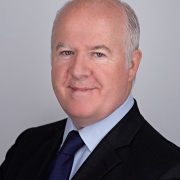

According to the FCA, since the Retail Distribution Review (RDR) and the Financial Advice Market Review (FAMR), from 2012 onwards financial adviser numbers, forecast to decline sharply, have actually risen by 1,400 to 36,400, a rise of 4%.
A small boost but a move in the right direction and evidence that, to misquote Mark Twain, the death of the financial adviser may have been greatly exaggerated.
The FCA report also found that 4.1m UK adults (8%) received financial advice in 2019, an increase from the 3.1m (6%) seen in 2017. Or in other words, between 2017 and 2019 an extra million people were able to get financial advice.
So far, so good, but as one commentator pointed out this means that in 2019 92% of people did not get financial advice when many could have benefitted from it.
In its report the FCA said some kind of technology-based robo-advice could help bridge the gap between those who need financial advice and those who actually get it. While technology will fuel positive change I’m not so sure it’s the magic bullet.
The FCA points to some positive numbers but as Quilter pointed out this week many savers are already nervous about taking robo or web-based advice because of the huge rise in financial scams which has, at the very least, dented consumer confidence in all things financial.
So what’s the answer? Well the reality is financial advisers, even if their numbers are on the up, are not going to be the solution to the advice gap, at least not yet.
As the FCA figures reveal there are well under 40,000 financial advisers in the UK. Within this the number of Chartered and Certified Financial Planners would barely top 7,000. That’s a huge shortfall in the number needed.
According to industry publication Accountancy Daily there were over 500,000 accountants in the UK in 2018. There are something like 200,000 qualified solicitors. In this context the number of Financial Planners is pitiful.
So how many are needed? Personally I see no reason why the number of planners should not double or treble over the next 10 years. We had several hundred thousand life assurance sales people in the 1980s and 1990s so while the model is quite different, many more planners could be supported.
To do this fee models will need to change to make advice more affordable and sustain greater numbers. Cost will need to be taken out of the advice process if it is to be mass market.
As the FCA pointed out in its review there is evidence of price-clustering around particular Financial Planning fee levels with no strong reasons why a client paying 3% per annum is getting a better service than someone paying 0.5%. Financial Planners need to be far more creative on fees and demonstrate value in a more transparent way.
New, lower cost models will need to emerge to make Financial Planning more affordable. It will be interesting to see what lasting changes the Coronavirus pandemic will bring to client servicing and the greater use of tech within the planning process.
The positive news in all this is that Financial Planner recruitment, thanks to a new generation of academies, is improving in leaps and bounds, and the professional bodies are working hard to build up graduate numbers. At the same time the expansion of Financial Planner firms continues apace. Overall some positive factors are now in place to speed up of expansion.
The profession still remains a minnow in UK terms but the figures just reported by the FCA may be the start of something much bigger.
• Get 50% off a subscription to Financial Planning Today Magazine for a limited time by using code ’50SAVER’ and get a host of benefits. https://www.financialplanningtoday.co.uk/fp-today-magazine.
Kevin O’Donnell is editor of Financial Planning Today and a financial journalist with 30 years experience. This topical comment on the Financial Planning news appears most weeks. Follow @FPT_Kevin
Leave a Reply